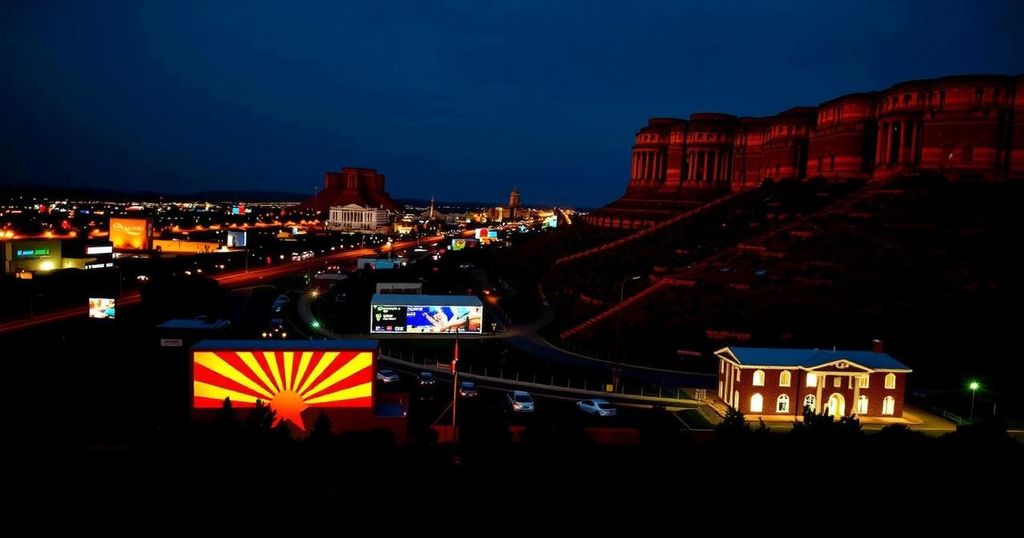Republicans have significantly solidified their presence in Arizona’s political landscape, with Donald Trump poised to reclaim the state, and strong Republican performances in local elections. Democrat Ruben Gallego aims to make history as the first Hispanic senator from Arizona. However, the Republican control of the Senate raises concerns about Trump’s unchecked agenda, while the state’s judiciary has shown resilience against politicization. Public safety initiatives received voter backing, but proposed changes to the electoral system faced resistance.
The recent electoral performance in Arizona signifies an increasingly solid Republican presence within the state. Donald Trump appears poised to reclaim Arizona, a territory he narrowly lost in 2020. This election cycle showcased Republican victories throughout lower offices, including all Arizona Corporation Commission seats, hinting at a consolidation of party power within the state’s political landscape. Meanwhile, Democratic U.S. Representative Ruben Gallego is on course to potentially assume a historical role as the first Hispanic senator from Arizona, which underscores the ongoing demographic shifts in the electorate in a region that holds substantial Hispanic representation. Furthermore, the Republicans’ achieved control over the Senate could stifle efforts against Trump’s agenda in the House, as the prospects of Democrats regaining control seem dim amidst a Republican majority. A trifecta led by Trump could yield significant implications for federal governance, with potential ramifications for legislative action in Arizona’s statehouse where gridlock could emerge due to a split legislative body. On judicial matters, voters demonstrated a commitment to maintaining judicial integrity by opting to retain two Supreme Court justices, which signals a rejection of the politicization of the judiciary. Additionally, public safety propositions received widespread voter support, emphasizing priorities surrounding law enforcement and illegal immigration. Despite various proposed changes to the electoral system, the electorate largely resisted alterations, indicating a preference for the status quo. Overall, these events in Arizona foreshadow significant political dynamics both locally and nationally, as shifts lean towards Republican governance amidst pivotal elections that could reshuffle power across various levels of government.
The article discusses the recent electoral trends observed in Arizona and nationwide, particularly focusing on the Republican Party’s apparent strengthening grip on state politics. It highlights key electoral outcomes of the 2022 elections, including notable victories for Trump and Republicans across various positions, while also addressing the Democratic response led by rising figures like Ruben Gallego. The wider implications of these shifts for governance, especially concerning potential legislative gridlock and judicial independence, are also examined, presenting a comprehensive overview of Arizona’s political landscape.
In conclusion, Arizona’s elections reflect a pivotal moment for the Republican Party, manifesting in the potential consolidation of power in both state governance and the shifting federal landscape. Ruben Gallego’s possible historic election to the Senate, coupled with strong Republican performances, underscores the complexity of electoral dynamics in Arizona. Ultimately, the outcomes signal potential changes in policy direction, judicial independence, and responses to public safety, thereby heralding a new chapter in the state’s political narrative.
Original Source: www.azcentral.com






